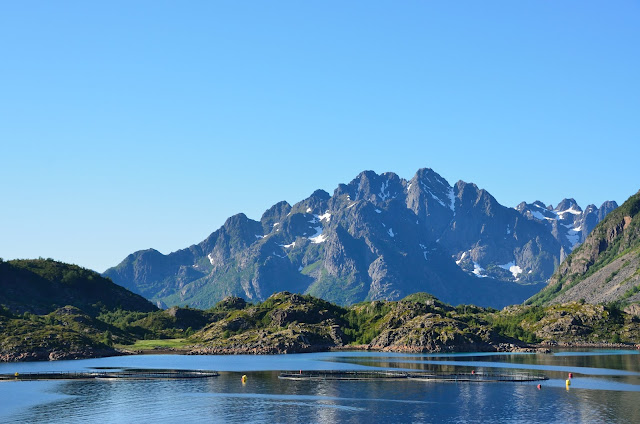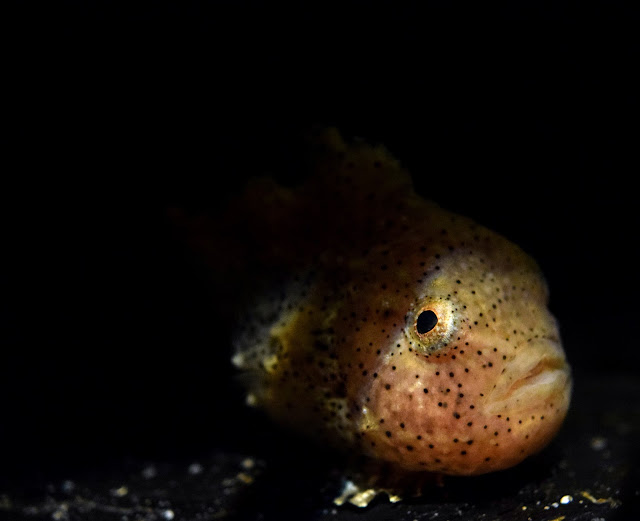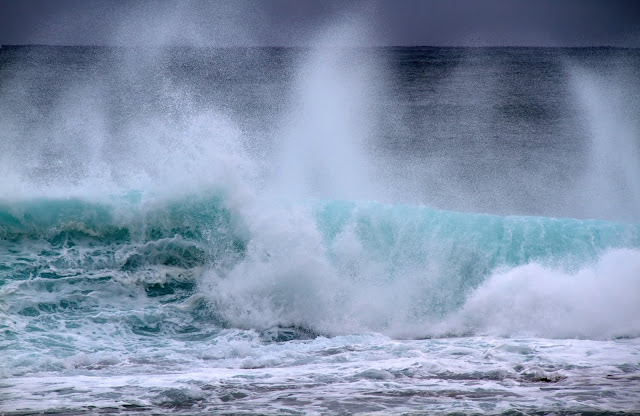Aquaculture Europe 2016 will take place in Edinburgh, Scotland on 20-23 September 2016. Here is an overview and short description of the Industry Forums being organised during AE2016. Full programme details will be updated on the AE2016 web page.
Tuesday, September 20. 13:00-18:00 Mentheit Room
Best practice in percid fish aquaculture
This workshop will summarise the current state of best practice in percid fish aquaculture, pertaining to reproduction and on-growing as well as broodstock management, quality control, training and marketing. Speakers from industry and applied research will share present their view. Further topic-related contributions are invited from all fields of technology, biology, market and supply chain research as well as case study reports and investment models.
Organised by the European Percid Fish Culture (EPFC) EAS Thematic Group on the culture of pikeperch, perch and other species of the family percidae for human consumption, stocking and conservation, the scope of the workshop is to bring together percid fish aquaculture insiders and experts from continental Europe and other regions and to provide a basis for exchange on industry and research relevant topics.
Please register no later than 26th August by sending an email to info@epfc.net
More info can be found on www.easonline.org and www.epfc.net
Wednesday, September 21. 10:30 – 17:30 Mentheit Room
The UK Aquaculture Initiative
The UK Aquaculture Initiative is a joint BBSRC and NERC initiative to support high-quality, innovative research and research translation within a growing community of people working together towards a mutual goal of developing a healthy, safe and sustainable UK aquaculture system.
This cross-research council initiative will bring together diverse expertise, knowledge, skills and facilities to deliver innovative approaches to solving industry challenges. In doing so, it will strengthen the research community to underpin the long-term needs of industry through interdisciplinary research, research translation, and the provision of training.
In 2014 a capacity-building call resulted in 21 projects being successfully funded across the breadth of our science remits. In December 2015 calls for Networks and Innovation Projects were announced and awards will be made in October 2016.
Wednesday, September 21. 14:30-17:30 Lowther Room
Salmonview seminar: Growing larger fish in RAS systems
There is an increasing trend to grow salmon to larger sizes in recirculation systems – although growing market-sized fish is still only done on a very limited basis, more and more companies are looking to release larger post-smolts to sea.
This seminar will look at the challenges and opportunities offered by the trend, with insights offered by a range of experts – academic researchers, industry technicians and commercial producers of RAS equipment – from Scotland, Norway and the Americas.
Topics due to be discussed include designing and building RAS systems, developments in RAS technology, waste disposal and the possibilities offered by GM fish.
The event is organised and chaired by the Salmonview Media Group, whose range of publications include Fish Farming Expert, Norsk Fiskeoppdrett and Salmon Expert and websites are www.fishfarmingexpert.com, www.kyst.no and www.salmonexpert.cl
Thursday, September 22. 10:30-17:30 Lowther Room
EAS/EATiP Day: development vs. stagnation: defining issues and identifying needs
Despite the stagnation in EU aquaculture development, both in shellfish and fish farming, during recent years, the multi-annual plans required for access to the new European Marine and Maritime Fund (EMFF) set out how European Member States (MS) intend to overcome the bottlenecks that are inhibiting growth in their national aquaculture sectors, and provide forecasts of production growth over the funding period.
Overall, the growth target within the EU is for a total of more than 1.5 million tonnes by 2020, an increase of over 300,000 tonnes (25%). This may, of course, be influenced by other external factors.
The AE2016 EAS EATiP Day will be the third of its kind and will look to share experiences, views and opinions so as to define the key issues, needs and bottlenecks that have to be overcome to meet these objectives and ensure growth.
Following an overview of the EU Member State plans, a first panel debate will provide case studies from EU and Associated States to compare and contrast the factors that contribute to growth or to defining their strategies; focus will be given to actions that execute their plans.
The second panel will debate in more depth on those issues that have been previously identified as bottlenecks to growth, addressing and discussing these so as to identify how to overcome the obstacles and strengthen opportunities for sustainable development.
Thursday, September 22 10:30-17:30 Lammermuir 2 Room
The use of cleanerfish in European aquaculture
Sealice control is important for the salmon farming industry. If allowed to develop without control in the salmon farms, sealice will be a problem to the salmon, and might impact wild salmonids. The use of and cultivation of cleanerfish started in the late 1980 ties, but already in 1976 a salmon farmer in Norway was using ballan wrasse for sealice control in the cages!
Through the 1990-ties, the salmon industry relied heavily on medication to control sealice, but with increasing resistance developing in the lice towards some of the medicines many non-medical methods to prevent and control sealice are under development. Now the most important of these are biological control using cleanerfishes such as lumpfish and wrasse.
These are partly caught in the wild and put into the cages, but to an increasing extent coming from specialised farms producing lumpfish or ballan wrasse specific to the purpose.
The AE 2016 Cleanerfish Industry Forum will focus on the actual use of cleanerfish in the salmon industry today, and will be an open discussion arena where farmers, scientists and other interested can discuss experiences, new knowledge and also identify knowledge gaps.
Tentatively the program will be divided into 3 sessions:
- The use of cleanerfish in European aquaculture, focus salmon farming. In this session representatives from different countries are asked to give short “snapshot” presentations covering statistics (production numbers, wild caught numbers, how many farms are using cleanerfish) and show 1-2 main new knowledge gain over the last years they think are success factors for efficient use of cleanerfish in their country.
- How to use cleanerfish in the salmon cages. In this session one or two experts will be invited to give a short “bullet-point” presentation “from stocking the cleanerfish to harvesting the salmon”, what’s their experience and opinion about today’s best practice. Based on this, the forum will be open for discussion, opinions and other suggestions about best practice, new experiences etc.
- Cleanerfish – health – welfare. To be efficient as lice-eaters, the cleanerfish must be “fit-for-fight”. In this session, there will be opportunities for short presentations about new products, initiatives and methods to secure cleanerfish health and welfare. The focus will be on practical, operational tools and methods, with time for comments and discussions.
Thursday, September 22. 10:30-12:50 (General Assembly) and 14:30-17:30 Mentheit Room
The future of trout farming
The British Trout Association (BTA) will hold its annual General Assembly (for BTA members only) in the morning and this will be followed by an open event in the afternoon.
The BTA Trout Forum, with an overarching theme of ‘The Future of Trout Farming’, will encompass a review of recent and current research projects from a number of research institutes, as the ‘science of aquaculture’ will be an essential foundation for future progress. A consideration of ‘the way forward’ for the industry, in the form of a report from the high level DG MARE event held in May 2016 and personal perspectives, will lead into presentations on assessment of trends in consumer products and market values.
The BTA is expecting to stimulate debate amongst members and interested third parties (regulators, civil servants, scientists, academics, students, etc.), not simply over the scientific research the Association is supporting, but the potential prospects for the industry, given that UK rainbow trout production – as it has also been across the EU - has failed to expand significantly in recent years. This may only be a temporary plateau, as there are some indications of expansion, however a critical assessment of trout products, marketing and operational costs is an essential requirement for a prosperous industry in the future.
Thursday, September 22. 10:30-12:50 Lammermuir 1 Room
Cutting a long story short - Selective breeding for aquaculture - Traits and tools
The European Marine Biological Research Infrastructure Cluster (EMBRIC) will be holding a Company Forum Workshop on the Development of biological resources for the selective breeding of shellfish and finfish.
The workshop wishes to bring shellfish and finfish farmers together with European scientists to promote interaction, information exchange, and discuss the needs of the industry of the future.
Contact: Prof Chris Bridges (HHU and Tunatech): bridges@tunatech.de
Thursday, September 22. 14:30-17:30 Lammermuir 1 Room
Feed for thought
Organised by the Scottish Aquaculture Innovation Centre (SAIC) and WWF, the workshop will highlight and discuss opportunities and challenges in the future of innovation into sustainable feeds.
Friday, September 23. 10:30-17:30 Lammermuir 1 Room
Aquaculture in Marine Protected Areas
Organised by the IUCN, and following the first workshop held at AE2015 in Rotterdam, this workshop will address the potential synergies between diverse types of aquaculture (finfish, shellfish, algae, etc) and types of Marine Protected Areas (Reserve, National Park, Natural Park, Conservation Zones, Sustainable Development Zones, etc). The main output of the workshop is to lay the basis for a short technical paper that covers:
- An introduction to the topic, including Marine Protected Areas categories, the ecosystem approach to aquaculture and the points of view of the environmental NGO and the Aquaculture industry.
- Case studies that present the MPA, its objectives and history, human activities, management and governance, aquaculture activities and financial sustainability.
- Aquaculture activities, including small scale aquaculture, community-based aquaculture, Integrated Multi-Trophic Aquaculture, aquaculture-oriented MPAs, MPA-labelled Aquaculture, links with other labels (ASC, Fair Trade, Organic, product Quality Label Rouge / Slow Food).
- Recommendations for policy and research.
Friday, September 23. 10:30-17:30 Lammermuir 2 Room
The Shellfish Forum
The Shellfish Industry Forum will cover some of the most pressing issues currently facing the industry. These will include discussion on the status of UK shellfish aquaculture industry. The European commission’s perspective on sustainable development of the shellfish aquaculture sector (Aquaculture Advisory Committee by EU Commission). Other topics will include matters around product safety including Norovirus, HABs and diseases, climate change and biosecurity.
Friday, September 23. 10:30-12:50 Mentheit Room
TAPAS - Tools for Assessment and Planning of Aquaculture Sustainability
The Tools for Assessment and Planning of Aquaculture Sustainability (TAPAS) EU Horizon 2020 project (2016–2020) will create cost-efficient management tools and practices for the European aquaculture sector to investigate the scope of fish and shellfish farming activity in a location, social interactions, potential environmental impacts and any future risks.
The AE2016 forum is for all industry and related stakeholders in European Aquaculture. It will introduce the TAPAS project and provide stakeholder engagement and feedback for some of the initial project objectives.
The main aim of the workshop within this forum session will be to:
- Discuss policy, social carrying capacity of aquaculture, and regulatory implementation from the industry, regional and national authorities and other stakeholders.
- Identify relevant EU licensing policies, regulations and bottlenecks for national or regional production.
- To discuss an analytical framework for the assessment of ecosystems services (ES) provided from European aquaculture and the possible trade-offs that exists between aquaculture provisioning services and other ecosystem services















